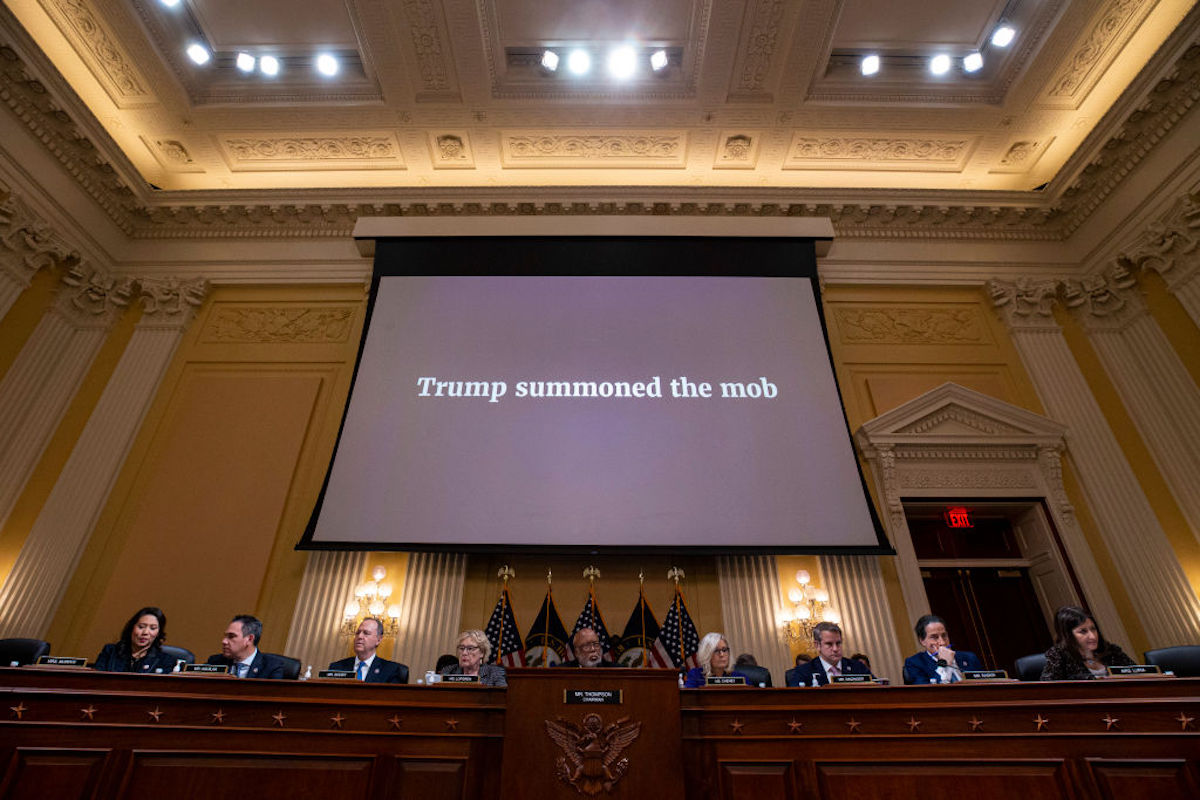How Does Donald Trump Keep Finding New Ways To Admit To Crimes??

Donald Trump is trying out a new legal defense, and much like some of his previous defenses, this one also basically serves as an admission of guilt.
In recent months, the question of whether Trump is ineligible to serve as president again due to his actions on and around January 6 has been popping up in legal discussions and even courtrooms. The argument against Trump’s eligibility is based on Section 3 of the 14th Amendment to the U.S. Constitution, which was adopted after the Civil War to keep Confederates who had broken their oath to uphold the Constitution from returning to office.
As Sean Grimsley, an attorney for the plaintiffs, put it (via Colorado Newsline):
“We are here because for the first time in our nation’s history, the president of the United States engaged in insurrection against the Constitution,” Grimsley said. “He spearheaded a multifaceted scheme to stay in power by any means necessary, the scheme culminating in a violent attack on the Capitol on Jan. 6 during the constitutionally-mandated counting of electoral votes.”
“And now he wants to be president again. The Constitution does not allow that,” Grimsley added.
The confusing decision
The judge in Colorado has now ruled that Trump did, in fact, engage in insurrection—but she also allowed Trump to remain on the ballot.
Much of Trump’s defense was based on the argument that he didn’t do what he was accused of but that *if he had* it wouldn’t matter because those things aren’t really crimes anyway!
Here’s what Section 3 of the 14th Amendment says in full:
No person shall be a Senator or Representative in Congress, or elector of President and Vice-President, or hold any office, civil or military, under the United States, or under any State, who, having previously taken an oath, as a member of Congress, or as an officer of the United States, or as a member of any State legislature, or as an executive or judicial officer of any State, to support the Constitution of the United States, shall have engaged in insurrection or rebellion against the same, or given aid or comfort to the enemies thereof. But Congress may by a vote of two-thirds of each House, remove such disability.
His lawyers argued that he didn’t “incite” an insurrection but that if he did, it’s fine because—and this really seemed to be the main focus of their argument—what the 14th Amendment prohibits is engaging in an insurrection, which they say is different.
They also said it’s fine if his actions didn’t “support” the Constitution because he never took an oath to support it in the first place! Technically, the oath he took at his inauguration was a vow to “preserve, protect, and defend” the Constitution, which are different words, even if the meaning is obviously the same.
They also insist that Trump’s First Amendment right to free speech protects all of these actions (which he may or may not have done).
In short: I didn’t do it but if I did it (WINK WINK) I can’t be punished anyway!
Semantic nitpicking
In her 102-page decision, Judge Sarah Wallace wrote that Trump did engage in insurrection because inciting is a form of engagement. (She also says Trump’s First Amendment rights don’t supersede the 14th Amendment.)
However, she also ruled that the ridiculous nitpicking over the meaning of “support” was valid, and that the wording of the Constitution indicated the framers did not intend to include the U.S. President in its scope.
Basically, this ruling finds that Trump did the things he was accused of, but some guys 150+ years ago never predicted a president would do those things, so there’s nothing we can do about it! Guess we’ll just let him be president again!
Insurrection is, remember, an actual crime. The plaintiffs in this case—a small group of Republican and unaffiliated Colorado voters—have appealed the case to the state’s Supreme Court. But no matter what happens there, there is now legal precedent for Trump’s actions being considered criminal.
Just because he and his lawyers argue that the Constitution doesn’t specifically include those actions in their wording of the 14th Amendment, that doesn’t mean there’s no chance of consequences.
(featured image: Al Drago/Getty Images)
Have a tip we should know? tips@themarysue.com